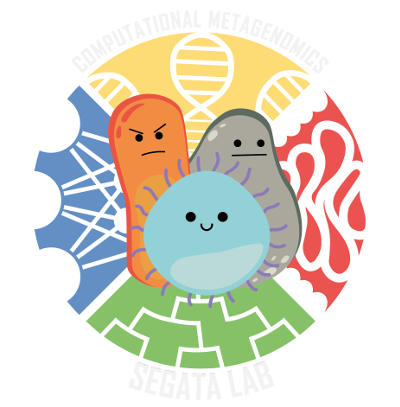Unexplored diversity of Prevotella copri
Prevotella copri is a common inhabitant of the gut, yet there are only a few publicly available genomes and much of what is known about P. copri is based on a single type strain. Using a combination of isolate sequencing and a cross-continent meta-analysis exploiting >6,500 available metagenomes we recovered 1,000 P. copri genomes spanning multiple host-geographies, disease and lifestyles. We demonstrate P. copri is not a monotypic species, but encompasses four distinct clades, that are highly associated with non-Westernized populations. We also expand the catalogue of non-Westernized sampled populations by sequencing individuals from Ghana, Ethiopia and Tanzania. Additional analyses of ancient stool microbiomes highlights a similar pattern of P. copri presence consistent with modern non-Westernized populations, allowing us to estimate the time of clade delineation to pre-date human migratory waves out of Africa. Our analysis reveals P. copri to be far more diverse than previously appreciated.
Data repository and supporting material
The >1000 isolate and reconstructed genomes
- Sequences (fasta files): Genomes
P. copri Phylogenetic tree
- Supplementary Data File 1 (Newick format): Donwload
Newly sequenced Non-Westernized datasets
- The metagenomic reads for these datasets are available under NCBI-SRA Bioproject ids; PRJNA529124 (Ghana), PRJNA529400 (Tanzania), PRJNA504891 (Ethiopia)
The ancient metagenomic samples
- The Data for the ancient metagenomic samples are available from the European Nucleotide Archive under accession no PRJEB31971
Other
For comments and questions please contact Adrian Tett or Nicola Segata
Citation
If you find the resource useful in your research, please cite our paper:
Cell Host and Microbe 2019 10.1016/j.chom.2019.08.018
1 CIBIO Department, University of Trento, Italy.
2 Department of Sustainable Agro-Ecosystems and Bioresources, Fondazione Edmund Mach, San Michele all'Adige, Italy.
3 The Kimmel Center for Biology and Medicine of the Skirball Institute, New York University School of Medicine, New York, NY 10016, USA.
4 Current address: Department of Agricultural Sciences, University of Naples Federico II, Portici, Italy.
5 The Broad Institute, Cambridge, USA.
6 Harvard T.H. Chan School of Public Health, Boston, USA.
7 Department of Agricultural Sciences, University of Naples Federico II, Portici, Italy.
8 Task Force on Microbiome Studies, University of Naples Federico II, Naples, Italy.
9 Center for Computational Biology, Flatiron Institute, New York, NY 10010, USA.
10 Departments of Biology and Computer Science, New York University, NY 10003, USA.
11 National Institute for Medical Research, Tanga Centre, Tanzania.
12 Kumasi Centre for Collaborative Research in Tropical Medicine, Kwame Nkrumah University of Science and Technology, Ghana.
13 Hardin Hall, School of Natural Resources, University of Nebraska-Lincoln, NE, USA.
14 CUBE - Division of Computational Systems Biology, Department of Microbiology and Ecosystem Science, University of Vienna, Althanstrasse 14, 1090 Vienna, Austria.
15 Centre for Translational Microbiome Research, Department of Microbiology Tumor and Cell Biology, Karolinska Institutet, Stockholm, Sweden.
16 Institute for Mummy Studies, EURAC Research, Viale Druso 1, 39100 Bolzano, Italy.
17 Institute of Agrochemistry and Food Technology-National Research Council (IATA-CSIC), 46980, Paterna, Valencia, Spain.
18 Department of Infectious Disease Epidemiology, Bernhard Nocht Institute for Tropical Medicine, 20359, Hamburg, Germany.
19 German Center for Infection Research, Hamburg-Borstel-Lubeck-Riems, 20359, Hamburg, Germany.
* Corresponding authors


